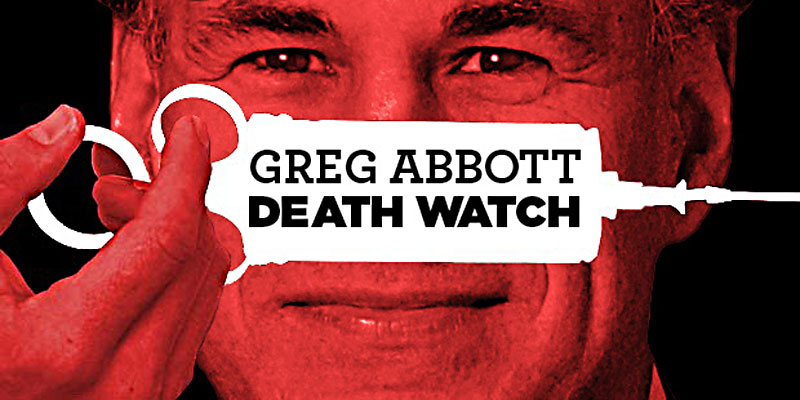Death Watch: After 45 Years on Death Row, Sentence Overturned
Appeals court rules mentally ill inmate can't be executed
By Brant Bingamon, Fri., April 23, 2021
The sentence of the longest-serving death row inmate in the United States, Raymond Riles, was overturned by the Texas Court of Criminal Appeals on April 14. The court ruled that jurors at his trial nearly half a century ago should have considered Riles' mental illness when deciding how to punish him.
Riles has lasted 45 years on death row because he's too psychotic to legally execute. He has described his killing of a Houston used car salesman in 1974, as well as setting himself on fire in 1985, as acts of God. He has referred to himself as the Lord Almighty and the Messiah, as well as "King Moto – Cherry Velt – Love and Justice." He believes officials at the Texas Department of Criminal Justice want him dead because he knows about "satanic secret societies of the TDC shadow government e-system."
The Supreme Court ruled in 1986 that the mentally ill can be executed as long as they understand why it's occurring. Accordingly, prison administrators have administered large doses of Thorazine and other drugs to Riles, hoping to get him sane enough to legally kill. "But," as his lawyers wrote in a 2020 writ, "despite four decades of treatment with heavy antipsychotic medications and periodic evaluations by State doctors, he has been declared incompetent for execution every time."
In its ruling, the CCA ordered Harris County to resentence Riles; if he receives life in prison, he could be released. But in a bit of perverse mental gymnastics demonstrating that insanity appears in many guises, Judge Michelle Slaughter in her dissent suggested death row is the best place for Riles. "If he is released on parole, his mental illness could result in homelessness and/or joblessness," the judge wrote.
The CCA also overturned the death sentence of Humberto Garza on April 14, deciding that his trial attorneys had done an impermissibly bad job by not presenting an adequate mitigation case to jurors during the punishment phase of his trial. Garza was sent to death row for his role in a botched robbery that left six dead in 2003. His mother hired the lawyers for his trial, neither of whom had ever handled a death penalty case. She also coordinated the attorneys' mitigation defense, finding the witnesses and choosing what testimony to present. As a result, jurors never learned that Garza had been born into a deeply dysfunctional family, that he'd been sexually abused at an early age, that he'd been abandoned by his mother and father, and that he'd become addicted to cocaine and alcohol at the age of 14.
Not addressed in the CCA ruling is the fact that Garza is one of the few death row inmates who didn't actually kill anyone. As the planner and getaway driver for the robbery – but not one of the gunmen – Garza was convicted under Texas' law of parties, which holds those who plan crimes responsible for anything that happens in their execution. Reps. Harold Dutton, D-Houston, and Jeff Leach, R-Plano, have filed House Bill 688, currently stuck in the House Criminal Jurisprudence Committee, to exempt people like Garza from the death penalty.
Got something to say on the subject? Send a letter to the editor.











